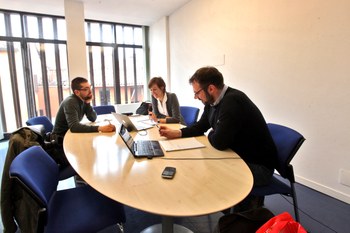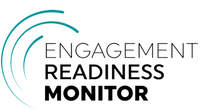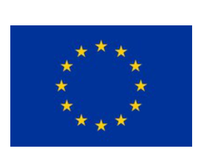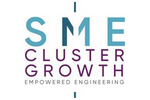Research

© Università di Bologna
The Oper.Lab Observatory collaborates with a network of universities to spread the culture of Open Innovation, thanks to funded research. The goal is to enable universities, researchers, and organizations to better understand and develop open innovation practices.

EReadyMonitor - The Engagement Readiness Monitor project
A self-assessment questionnaire that investigates the factors that encourage universities to collaborate with companies, and a toolkit that helps increase universities' propensity to cooperate with companies. The Oper.Lab Observatory, in collaboration with some European universities, has developed a toolkit aimed at Higher Education Institutions to assess their readiness to collaborate with companies and improve their willingness to cooperate to transmit academic research results to the market and society in general through patents, licenses, university-industry collaborations, academic consulting, and the creation of new companies. Particular attention has been paid to the creation of new initiatives and the improvement of relationships with established companies.
In collaboration with: University Industry Innovation Network BV - Netherlands; Institut Mines Telecom Business School - France; Univerzita Karlova V Praze - Czech Republic; JAMK University of Applied Sciences - Finland.
Link: Project website

ABC4E - ATTRACT Behavioral Change 4 ERI scientists
A training for researchers working in universities, research centers, and businesses based on Acceptance Commitment Therapy (ACT) that improves psychological flexibility, a key entrepreneurial skill that enhances knowledge exchange in Open Innovation processes. The aim is to overcome behavioral barriers of scientists that negatively impact knowledge exchanges. The Oper.Lab Observatory, in collaboration with CERN and other European organizations, universities, and research centers, has developed a study on researchers to try to increase their mental flexibility towards the outside through psychological training.
In collaboration with: European Organization for Nuclear Research (CERN) - Switzerland; European Molecular Biology Laboratory (EMBL) - France; European Synchrotron Radiation Facility (ESRF) - France; European Southern Observatory (ESO) - Germany; Fundación ESADE - Spain; European X-Ray Free-Electron Laser Facility GmbH (European XFEL) - Germany; Institut Max von Laue-Paul Langevin (ILL) - France; Aalto University Foundation (AALTO) - Finland; European Industrial Research Management Association (EIRMA) - Belgium; University of Enna (Kore) - Italy.
Link: Project website

This project has received funding from ATTRACT. A European Union’s Horizon 2020 research and innovation program under grant agreement No. 101004462.

OMNI Be Aware Student - OMNI-BEAST
OMNI-BEAST is a project that aims to support students in customizing their career paths in relation to the job market by applying the methods and techniques of design thinking. The goal is to make university students more aware of the different career opportunities and the skills and soft skills required for different professions. The Oper.Lab Observatory, together with other project partners, has developed a set of Canvases and a Summer School course to support university students in choosing their specialization, aligning their educational path with their true passions and interests, and increasing their value in the job market. Additionally, a course has also been developed for university professors to better guide their students.
In collaboration with: Instituto Politécnico de Portalegre - Portugal; Militos Consulting Sa - Greece; Universidad de Sevilla - Spain.


SCG - SME Cluster Growth project
The SCG project aims to empower SMEs in the engineering sector through the development of cross-functional skills for human resources such as relational intelligence, emotional intelligence, and the ability to recognize future trends. The goal is to empower innovation growth in SMEs in the engineering sector. To achieve this result, the team has decided to specifically focus on teaching engineering professionals some soft skills necessary for innovation development. The Oper.Lab Observatory, in collaboration with some European universities, has worked on the development and growth of mobility and training programs (workshops, peer learning, hot desk scheme) for SMEs, business consulting for students, and launching cross-border programs for sharing facilities.
In collaboration with: University of Malaga (UMA) - Spain; Institut Mines-Télécom Business School (IMTBS) - France; Crazy Town Oy (CT) - Finland; University of Alcala de Henares (UAH) - Spain; University Industry Innovation Network (UIIN) – Netherlands; Istanbul Technical University (ITU) - Turkey; Momentum (MOM) - Ireland; Munster Technological University (MTU) - Ireland.
Link: Project website

KTSoftSkills - Soft Skills for Knowledge Transfer
The project focuses on strengthening the cross-cutting skills that support interaction and collaboration within innovation ecosystems (co-working and maker spaces, contamination labs, fab labs, design factories, etc.), while improving the potential for innovation. The aim is to improve the cross-cutting skills of KT professionals and design a tailor-made training program to improve KT throughout Europe. The Oper.Lab Observatory, together with project partners, will develop a survey to better understand the needs and benefits of improving cross-cutting skills of Knowledge Transfer professionals. Subsequently, the identified soft skills will be designed and validated, and the KT Soft Skills Training Program pilot test and toolkit will be developed and administered to KT professionals.
In collaboration with: Netval - Network for the Valorization of Research - Italy; ASTP Proton - Netherlands; Sopu Academy - Finland; Think Company - Finland; Jagiellonian University - Poland.
